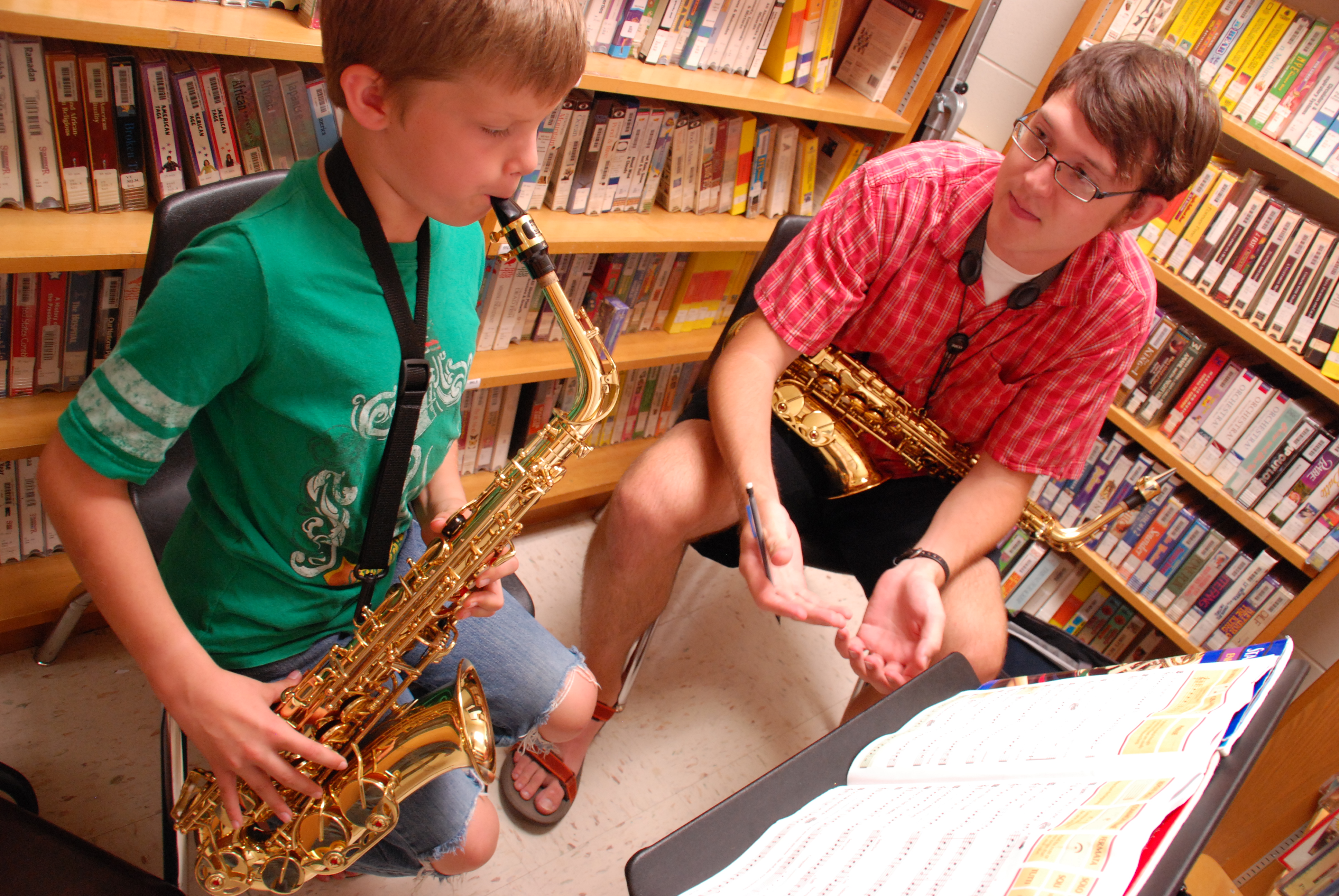
James Skretta ’09 studied music education at Central and now plans to teach saxophone, music history and theory at the college level.
Saxophonist James Skretta ’09 has won the national Young Artist Performance Competition in the Music Teacher’s National Association (MTNA) woodwind division for 2013-2014. Skretta, currently a doctoral student at the University of Iowa, competed against musicians from across the United States at three performance levels to win this highly prestigious award. Skretta, a music education major at Central, said finding his way to a career in music was a gradual process.
When did you first become interested in music?
Skretta: I always enjoyed music class in elementary school. My parents owned a little Casio keyboard that I always enjoyed playing on, though I didn’t really know what I was doing at the time. I started playing the saxophone in 5th grade band, but didn’t really start to enjoy it until I had some especially profound experiences in high school, mostly through jazz band.
Why was studying music at Central important to you?
Skretta: Music, like any other form of art, helps us to express thoughts and feelings that other means of communication cannot. Art and creativity are what truly define culture and are essentially what make us human. Music is important to the college experience because the time we spend in college usually includes a great number of experiences that shape how we will think about and view the world for the rest of our lives.
Why did you want to pursue graduate studies in saxophone?
Skretta: Early in my undergrad studies my mentor, Cynthia Doggett, associate professor of music, exposed to me a world of classical music for the saxophone that I never knew existed. It was so interesting and enjoyable to study and play a lot of this music that I didn’t want to stop studying and performing it. Although I completed my degree in music education and thoroughly enjoyed student teaching in Newton, Iowa, I knew that what I really wanted to do was teach saxophone and music history and theory. Public school teaching doesn’t offer that in the way that teaching at the college level can.
What does your graduate work look like?
Skretta: I’m currently completing a DMA, Doctor of Musical Arts. My specific graduate program includes a handful of advanced musicology and music theory courses and a few classes on teaching woodwind instruments to advanced musicians, but the program is mostly focused on developing my skills as a professional musician through private lessons and a heavy amount of chamber and ensemble performing. During these past three years, I’ve especially felt that I spend the majority of my day practicing, rehearsing with others and performing, using whatever spare time I have for the academic courses.
Tell us more about your experience at the MTNA Young Artist competition.
Skretta: These music competitions are an interesting experience, mostly because of the subjective nature of judging creativity and artistry. Everyone competing plays at such a high level that anyone can win first prize on any given day. Frequently one judge might like something that you do while another judge negatively scrutinizes it. It’s definitely a nerve-wracking experience, and probably not the healthiest experience for an anxiety-prone person like myself, but I always enjoy being involved in events where you can be tangibly rewarded for your work.
What does winning the Young Artist competition mean for you professionally and personally?
Skretta: Professionally, winning this competition gives my resume a substantial boost, as most university faculty are aware of the MTNA competitions and understand their significance. Performing for the judges in all three rounds of the competition also gave me a great deal of exposure. Personally, winning the competition is especially validating for my psyche. I spend a great deal of time by myself in a practice room being self-critical of what I play and hear. It’s very easy for me to nit-pick every detail to the point that I tell myself that I sound horrible. Playing for others and receiving the feedback I did helped to show that I’m on the right track with what I’m doing.
What is your favorite memory from Central?
Skretta: My fondest Central memories come from the time I spent studying abroad in Germany and Austria—Vienna, especially. The time I spent there and the relationships I made have perhaps had the biggest impact on how I view the world and think about humanity. Vienna is a unique city in the world. No other city of its size makes classical music so accessible to the public.
What are your future plans?
Skretta: After graduate school I hope to teach at a small university or liberal arts college. Teaching at Central would certainly not be out of the question, should the opportunity present itself!
What advice do you have for young musicians?
Skretta: I have two pieces of advice. First, listen to your teachers. They’ve been in your shoes. Seriously. Second, don’t give up. You will always be your harshest critic. Harness that and trust in your ability.


